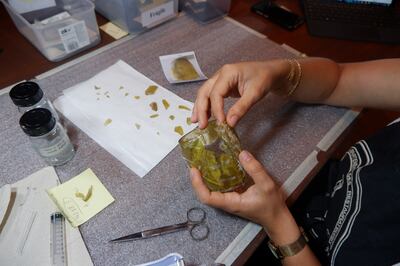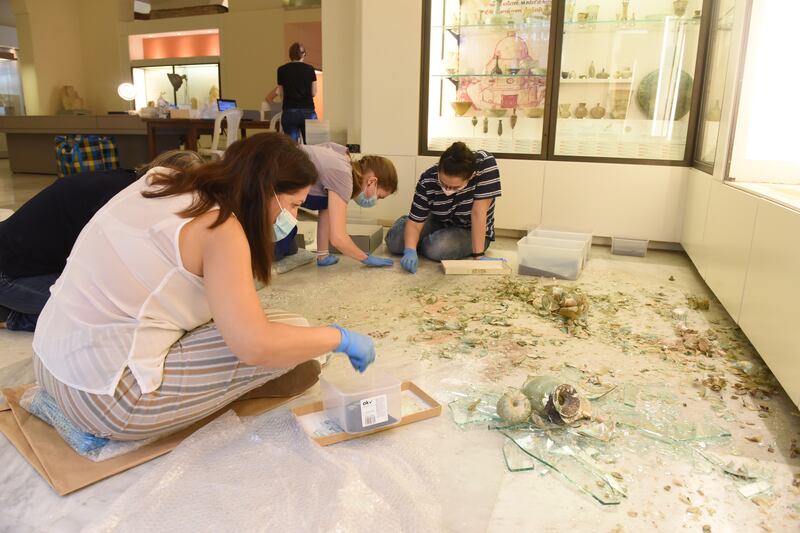The British Museum will restore eight ancient glass artefacts damaged in last year's Beirut port explosion, the cultural institution in London announced on Tuesday.
Listen to the latest podcast on the Beirut blast here.
The glass vessels shattered when 2,750 tonnes of ammonium nitrate stored in the Lebanese capital's port blew up, devastating the city on August 4, 2020.
Workers will piece together hundreds of glass fragments at the British Museum's conservation laboratories with funding from the European Fine Art Foundation.
"These objects hold immense historical, artistic and cultural significance. Their return to their rightful form is a powerful symbol of healing and resilience after disaster," said foundation chairman Hidde van Seggelen.
The artefacts were held in a case displaying 74 Roman, Byzantine and Islamic-era glass vessels in the American University of Beirut's Archaeological Museum, a little more than three kilometres from the blast.
Last year's explosion caused them to shatter into hundreds of pieces, which were mixed with broken glass from cabinets and windows.
The innate difficulties of restoring the vessels meant only 15 were deemed salvageable. Just eight of these were considered strong enough for the journey to London.

“Glass is a very difficult material to reconstruct, not least because the shards flex and ‘spring’ out of shape and have to be drawn back under tension to restore the original shape," said Sandra Smith, Head of Collection Care at the British Museum.
"Doing this for hundreds of pieces is a delicate process but our world-class facilities and highly experienced conservation staff will ensure these items are preserved to exceptional standards.”






